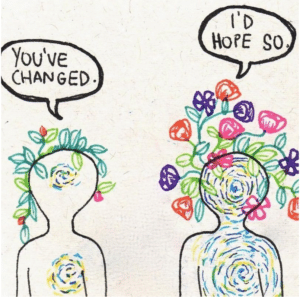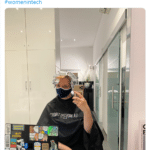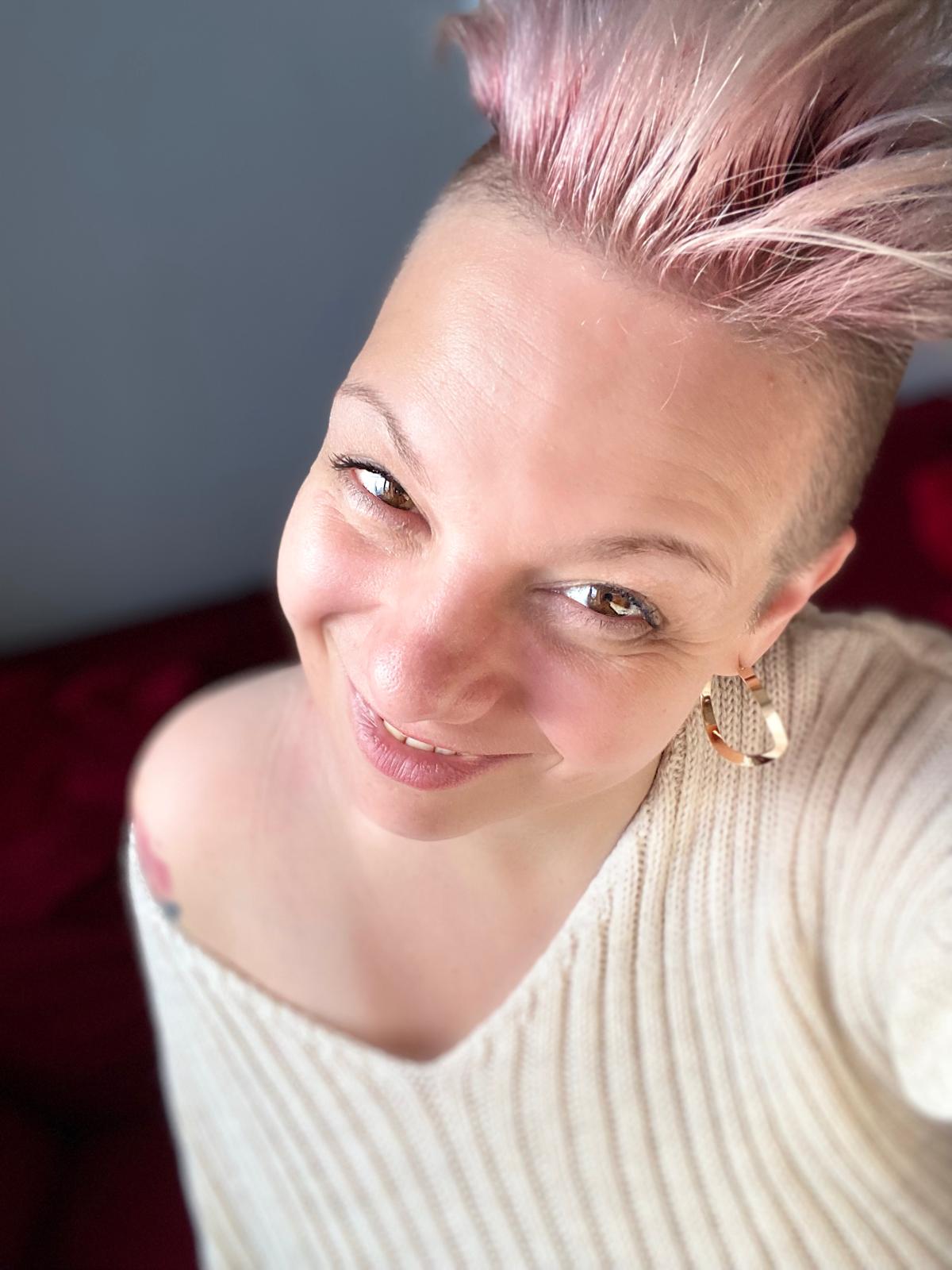my 2020 or jumping into the next rabbit hole
2020-WHAT. A. YEAR.
This was a special one for me, like for so many of us. When we were still traveling and making big plans in the first weeks of 2020, no one had a clue that we all would be sitting at home (office) for most of the time and struggle not to meet people nor see other places. But as this is a recap of my year 2020, I won’t focus on the pandemic side of events but on how I perceived this year. If you want to catch up first with #2019recap, you can do this here: 2019 or how I started to believe in myself
I run my own one-woman-army and offer Microsoft 365 consultancy. In the last years, I used to say that I do the ‘non-technical’ part of a project, focusing on adoption and communications and making excuses for my non-traditional background. I stopped doing this, and I developed my perception of myself and grew into a different role. This happened not by coincidence, but because I was focusing on some topics. As this will take some time to tell, you should grab a coffee; I will wait here.
How it all started
Got a coffee or a drink? Cool, let’s continue. Everything started in this pandemic- and lockdown situation. Remember when I was giving away stickers and send them around the world in 2019? That was a huge success, and I quickly needed to develop an excellent solution to handle and automate it. I used Power Automate to make the process of printing envelopes easier and faster. During the early phase of Covid19 lockdown, I teamed up with Elio Struyf and together we founded our startup pimpyourowndevice.com which is an online sticker shop. Both of us were designing and sharing stickers before, and it seemed to be a logical step. As both of us wanted to learn from each other and explore what we could do with our skills, we did not go with a standard approach of having a decent out-of-the-box solution to run a store but developed our way to handle things. We both love to tell our #BetterTogether story- me as a maker, he as a developer. You can read more about how we run this business in Elio’s blog.
FusionDev & developing my maker skills
As I now had a real-world project with real products, real customers, and real issues, I wanted to step up my Power Platform game. I’ve already been quite familiar with Power Automate, gave many sessions at conferences, blogged about it, and of course, enabled my customers to simplify their processes as well. I also used Power Virtual Agents in some cool solutions; you can watch one of them in this video: Power up Teams with Power Virtual Agent with Luise Freese | #LessCodeMorePower | Channel 9 (msdn.com)
But for some reason, I did not have any experience with Power Apps. Time to change that. I released my very first Canvas App on 2020-05-04 (the Star Wars nerds will get it ). It was an app to help kids practice calculating; you can read more about it here: [May the force be with me). This app was somehow a breakthrough for me, as I learned to make apps in Power Apps and needed to find a way to make a math app while I have dyscalculia. If you are not familiar with that term, dyscalculia is a learning disorder, like dyslexia. People with dyscalculia struggle with maths and numbers in general. I use to explain it like that:
*Every time I see a math problem, it looks like this:*
*”If I have 10 ice cubes and you have 11 apples, how many pancakes will fit on the roof?*
*Answer? Purple. Because aliens don’t wear hats.”*
Sounds perhaps a Lil funny, but in fact, it affects me every single day- So I chose my ‘end of the level baddie’ to make an app. I did not only learn how to use the different controls and how to low-code, but also took all my knowledge from consulting clients (understanding the problem that needs to be solved, envisioning a solution, building a ‘minimal lovable product’ and adapt it again and again after reviews) into my app making process.
This led to more and more apps and sessions, where I explained how to get started with Power Apps. The fact that I got quite some visibility and exposure led to customers asking for Power Apps development and empowerment. And while I designed training and workshops for them, I learned different approaches to solve problems and explain everything so that it made sense to different target audiences. Some of my workshop attendees are end-users, some of them are experienced citizen developers who were not familiar with Power Platform but already built solutions on other platforms, some of them are web developers looking into faster ways to achieve their goals, and some of them were looking for a more institutionalized way to solve issues in their organization. As I learned in my startup, that #FusionDev, the mixed team of makers and traditional developers, is beneficial for a project, I could show and tell first hand how makers and developers could team up to achieve more together.
As a result, I successfully shifted my own business from being a business consultant in Microsoft 365 universe to a more technical role as a Low Code developer and consultant. How did it happen that fast? Because I enjoy growth and problem-solving. When I want to learn something, I immerse myself in that topic. I follow hashtags and people on Twitter, watch YouTube videos, read blog posts, and of course, tell anyone that I want to learn that thing. And then, I start exploring and building—basically, I #DoTheThing -thanks Dona!

Microsoft Graph & Dev Community
I knew this from my Power Automate journey in the previous year – if I wanted to do cool stuff, I needed to use Microsoft Graph. In 2020, this did not only mean extending my knowledge of using the Graph API in my Power Platform solutions but also learning about Microsoft Graph Toolkit (MGT). I blogged a whole [series about my experiences as a non-traditional developer with MGT and had quite some AHA! Moments when I realized that there is so much more for Low Coders like me beyond Power Platform and that people spend too much energy distinguishing between makers and developers instead of looking deeper into what unites us and how we could benefit from each other.
After I started blogging about MGT, I got invited to the team of the fantastic group of people that ran the Lap around Microsoft Graph Toolkit. And I learned some things that would be very important to me:
DevCommunity is a fantastic place to be, and everyone nicely ‘adopted’ me while I love to advocate for this #BetterTogether
My not-code-centric perspective was helpful for others and helped them gain a different angle
I extended again and again my comfort zone and decided to never return to it anymore. Growth, to me, means keeping on boldly going.
One way to learn were the 3 Microsoft 365 Developer Bootcamps that I attended under, let’s say, ‘special conditions’:
* 1* at my hairdresser’s, with tin foil in my hair while coding
* 1* at my nail artist’s – working temporarily handicapped, as I only could use one hand
* 1* at 4 am after my own ‘in-Lockdown-Birthday-party.’
I like to tell this because it shows that I can gain skills and grow but still stay the same multidimensional person – who loves to joyfully jump into the rabbit hole and enjoys life (even in a pandemic).
Microsoft 365 PnP
After I’ve been a guest in PnP Weekly ep. 71 I started to join Microsoft 365 PnP calls because I loved to gain more knowledge about low-code and coded solutions in Microsoft 365. Later, I participated in the SharingIsCaring initiative. My friends David Warner and Hugo Bernier let me tame this GitHub monster for me so that I am not scared anymore. As a result, I became a contributor to Microsoft 365 Community Docs which happens to take place in GitHub. 4 weeks ago, I had the great honor to become a member of the Microsoft 365 PnP core team – My mission is to emphasize that we can achieve more together. I will be taking the lead of initiatives to make this community a virtual home for everyone who wants to extend Microsoft 365 regardless of technical background.
Mental health and clarity
Like most of us, I struggled with being at home a lot, and I established some bad habits. After I finished my ‘work work’ (this is how I call my billable hours), I started to do ‘work’ ( this is how I call community work, such as writing blogs, preparing sessions, recording podcasts, etc.). I worked crazy hours at night, didn’t take breaks, and was just happy to be busy enough not to feel alone. This led to overcommitment, which was grounded in a false belief that ‘more is better’. You can read more about it in my last blog post about How to avoid overcommitting I solved that not by ‘learning to say no’ but by taking a more in-depth look into the root of the cause. When I wrote my list of contributions in this blog post’s preparations, I got slightly shocked. In total, I
- attended 13 events
- delivered 39 sessions at virtual events
- wrote 22 blog posts
- co-organized 4 conferences
all while living 24/7 on Twitter 🙂
I was shocked, because I did not imagine this amount of contributions, but when I reflected this thought with two close friends, they were not surprised at all – which means that my perception and how others perceive me don’t match.
It took me a whole afternoon to make this list, and yes, I know, I should update my list after every contribution. But as this simple thing so far didn’t ‘just happen,’ I asked myself why I refused to update a list. As I was already working on understanding what drives me, I took some time investigating that. When I felt #comfortablynumb with being busy, I tried to avoid clarity about what I was already doing regarding community work – and a list would have led to clarification. Now that I regained control and overview of all initiatives that I am running, I have an intrinsic interest in knowing what I do and succeed. So I will update my list of contributions and take time to reflect on what I learned (about tech, community, and myself).
Sounds like a plan – read in my #2021recap how this turned out.
Please #staySafe, hope to meet you in 2021!
You May Also Like
How to avoid overcommitting
Intro Besides my work as an independent consultant and low code developer, I do a lot of community work. I am an active Microsoft MVP, new member of the PnP team, run a blog, am a speaker at …
Please don’t “hello” me! Why “hello” in Microsoft Teams isn’t polite!
I recently stumbled over nohello.com and aka.ms/nohello, which refers to https://github.com/sbmueller/nohello/blob/master/index.md#please-dont-say-just-hello-in-chat by https://sbmueller.github.io/. …
Lego & Community – Interviews about building and learning
After some blog posts about Power Apps and my personal Microsoft Graph challenge, I am excited to announce that I will run a Community interview series about Lego. I noticed that there are a lot of …






